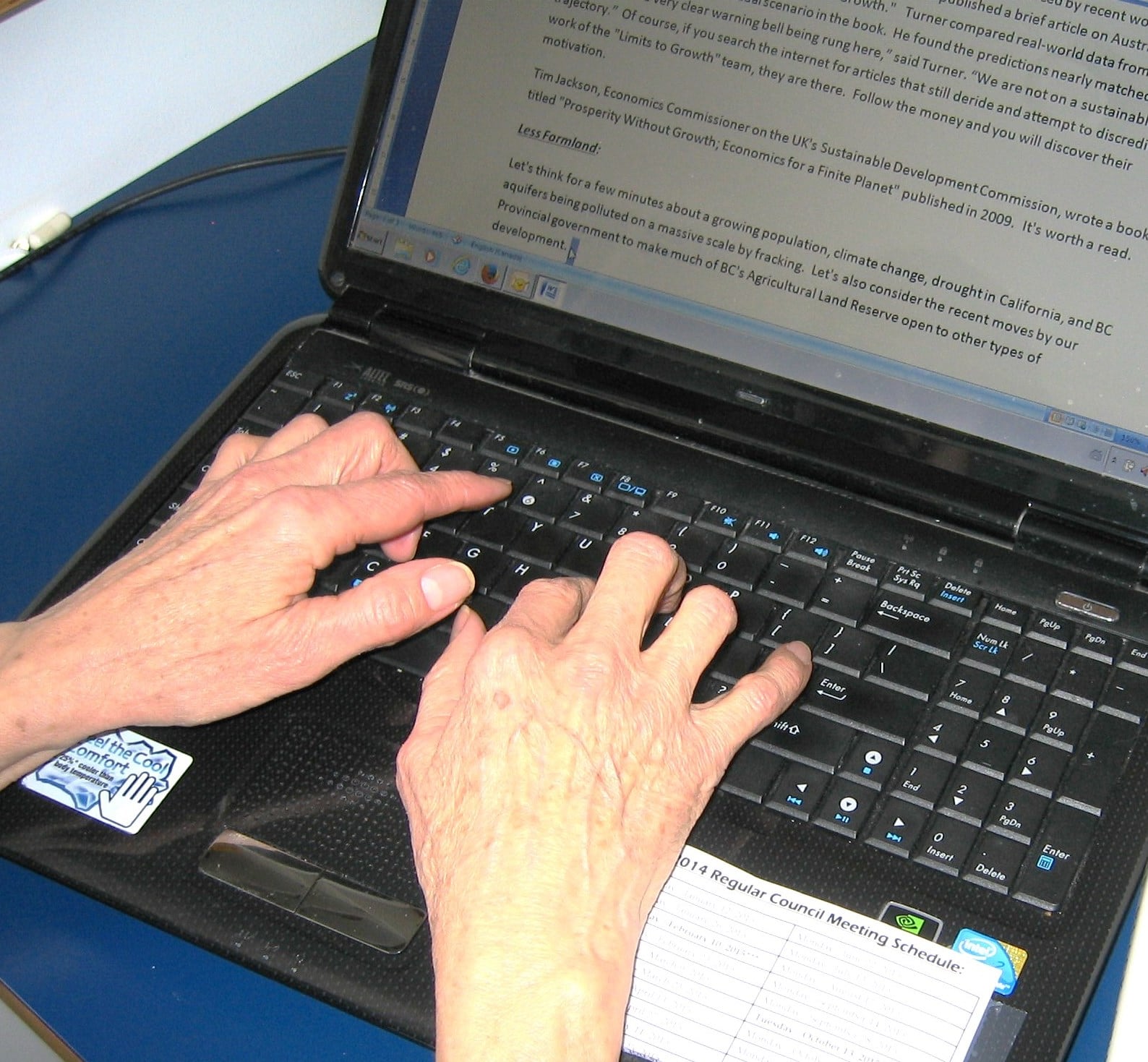Editorial Rant: What are we celebrating? And how do we behave?
A plea for civility in the law, politics and our everyday lives
Mid-winter is approaching, with our various seasonal celebrations: Christmas, Kwanzaa, Hanukkah, Winter Solstice, and maybe even Festivus? We celebrate our religious and / or ethnic affiliations; we celebrate the return of the sun for longer periods of time each day; we celebrate family and friendship.
Can we also celebrate our basic human rights, getting along well with each other, appreciating our points of agreement, while working around the inevitable points of disagreement with courtesy and respect? Can we articulate our reasons for disagreeing on issues, without degenerating into boorish and irrelevant personal attacks and insults? We enjoy freedom of speech, within certain limits set by law. But there’s an old expression that goes something like this: It’s a poor citizen who lives by the law. Translation: a person whose behaviour isn’t quite illegal or actionable in court may not be a criminal, but might be a sleaze-bag or obnoxious jerk instead. Not a good citizen. Not someone most people would want as a neighbour, boss or co-worker. Don’t be that person, please.
Fundamental rights colliding?
There are times when our various rights and freedoms seem to collide. Freedom of speech can butt heads with our right to live free from oppression by hateful speech or defamation from others. Freedom of association can be limited by anti-discrimination laws. Where do we draw those lines?
One case: a rude and disruptive lawyer
Recently, a well-known lawyer in Ontario has run up against a few professional requirements and is conducting two separate battles against them. He is fighting for a right to behave with as much “incivility” and disruptiveness as he likes in court. He was disciplined by his province’s law society for violating the professional code of conduct by his rude and disruptive behaviour during a trial, and has appealed the sanctions imposed. That battle is going all the way to the Supreme Court of Canada (SCC).
And a “conscientious objector” to promoting human rights: bigotry in the workplace as a matter of conscience?
His second battle was for a right to refuse to sign a declaration that he will adopt and abide by a required statement of principles. He wanted “conscientious objector” status to exempt him and any others who do not want to be bound by any obligation to “promote equality, diversity and inclusion.” He introduced a motion to that effect that was discussed and voted upon by his law society this month; his law society ruled against him, in a 38 to 16 vote.
The Benchers of the Law Society of Upper Canada form the governing body for Ontario lawyers and paralegals. The rude and disruptive lawyer is actually one of them, but is still subject to decisions of the majority. By majority vote this fall, the law society introduced the requirement that all Ontario lawyers and paralegals sign and abide by the statement of principles, in an attempt to reduce the barriers to employment ― and hassles in the workplace ― faced by people who are members of groups subject to discrimination. Immediately, the requirement was attacked by some legal scholars and lawyers who said that it tries to impose beliefs on lawyers and is contrary to the Charter.
Not beliefs, just actions
Others point out that it doesn’t attempt to impose beliefs, just a standard of conduct that all lawyers ought to be more than willing to uphold. Ontario Bencher Raj Anand says the words in the statement merely emphasize obligations that are already in place under the Human Rights Code and the law society’s Rules of Professional Conduct, which say that lawyers have a “special responsibility” to advance equality.
The president of the Ontario Bar Association, Ross Quinn, stated that equality, diversity and inclusion are “fundamental to the future of the profession.”
“Incivility” and our courts
The rude and disruptive lawyer claims that he needs the freedom to be rude and disruptive in court so he can be “a strong advocate” for his clients. I strongly disagree; if a lawyer cannot present the evidence in a case and argue the law without being rude and disruptive, then he or she is merely demonstrating some degree of incompetence, or a weak case, and a high level of disrespect for the court. The incompetence lies in the lawyer’s inability to present a compelling case without distracting theatrics.
Courts or circuses?
I once spoke with a man from California who was litigating a case in British Columbia. He exclaimed that he was so impressed with the dignity and courtesy of the BC courts. “In California, it’s more like a zoo, or a circus,” he said. I have a strong preference for a court system in which civility is the rule, because when rude and disruptive behaviour seems to distract the court’s attention away from the evidence and the law, how can we have faith in the results? Especially when juries are part of a trial.
A creeping perversion of justice and human rights
If our rude and disruptive lawyer has his way at the SCC and wins lawyers a right to disregard the parts of their professional codes of conduct that require civility in court, I will lose a great deal of faith in the integrity of Canada’s justice system. If his motion that Ontario lawyers should be exempt from any obligation to promote equality, diversity and inclusion succeeds, it will signal an erosion of human rights and Canadians’ commitment to uphold them.
I wish him complete failure in his all efforts to normalize rudeness and bigotry. More: I even wish him gone from the Canadian legal profession.
And ―what about politics?
I also wish incivility gone from politics. Everywhere else too, but could we please start in Canada?
Attack ads are used politically because people think they work. But they’re often misleading or downright false; for instance, a recent ad by one of our BC political parties falsely claimed that proportional representation would somehow discriminate against voters in rural ridings. That claim is false because the form of proportional representation to be proposed has not even been chosen yet, and there are measures that have been designed specifically in some forms to avoid any such imbalance. Yet the ad was there, bleating a lie which will be believed by the party faithful and others who are ill-informed about the issue.
Canada’s Parliament is another hotbed of counter-productive incivility, wasting in party warfare precious and expensive time that ought to be devoted to cooperating on far-sighted, evidence-based problem-solving and improving legislation for the common good of all of Canada. Really. Is that so much to ask of our government ― that they stop bickering so they can do their job?
Incivility, AKA rudeness, is a form of bullying.
We decry bullying. We sponsor anti-bullying programs in schools. And yet we accept without demur an increasingly rude and angry tone in public discourse and allow it to taint private conversation as well; by our dismal example, we are showing children that it’s just fine to be rude to others and dismissive of those who are different in some way ― and that’s the slippery slope that has racism, other forms of bigotry and bullying part-way down, and gun massacres and bloody warfare at the bottom.
Yes, there is much in our so-called civilization to provoke anger. But cultivating anger will not resolve those issues. Shouting insults, or whispering them behind backs, will not convince anyone to change their minds about anything, or their behaviour; it will only propagate anger. It is destructive, rather than constructive.
Whereas learning to control angry impulses and to be respectful has much better pay-offs. Respect, courtesy, and listening to other points of view may not solve the world’s problems, but gives a better chance of moving toward solutions than just letting fly with rage.
Smile; it feels good and it’s good for you. And for everyone who sees you.























Comments